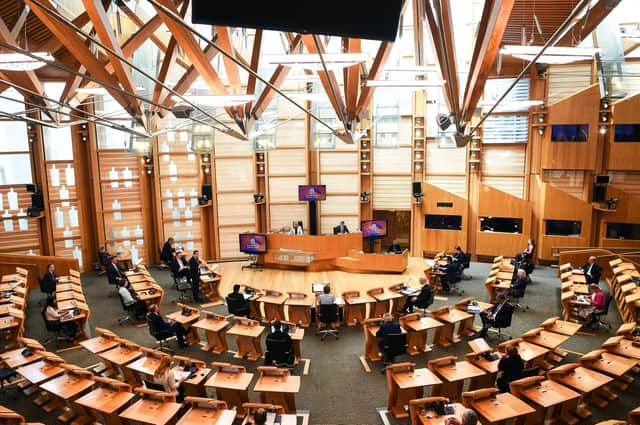Coronavirus in Scotland: New Bill to extend emergency legislation into 2022


The Coronavirus (Extension and Expiry) (Scotland) Bill will see the extension of some parts of the emergency coronavirus legislation passed last year and if agreed by Holyrood, some could be in place more than two years after first passed by MSPs.
The Bill was formally introduced to the Scottish Parliament today and will be scrutinised and debated by MSPs over three days from Tuesday, as the government moves to extend the original expiry date of September 30 2021, March 31 2022.
Advertisement
Hide AdAdvertisement
Hide AdThe measures to be extended include allowing courts and tribunals to continue to work remotely as well increasing the notice period for evictions in the private and social rented housing sectors to six months. They also include retaining an increase in the minimum debt level an individual must owe before a creditor can make them bankrupt to £10,000 – up from £3,000 pre-pandemic.
Meanwhile measures proposed for expiry include emergency those dealing with Children’s Hearings and child protection and ‘stop the clock’ measures on the duration of guardianship orders and certificates authorising medical treatment for adults with incapacity, will end.
Provisions introduced to ensure couples could still marry or enter a civil partnership will will also fall now that local registration offices are able to re-open.
Covid Secretary, John Swinney said: "The Scottish Coronavirus Acts contain provisions which make temporary adjustments to respond to the pandemic, and protect the health of people living in Scotland.
"We have already suspended or expired many provisions that are now redundant as restrictions have eased. However, to ensure those still required to protect the public and maintain essential public services can continue beyond September 30, we have brought legislation forward to enable parliamentary scrutiny before the summer recess.
"This timeframe is necessary to give public services, like the courts, certainty ahead of original expiry dates, taking into account the time needed for this legislation to come into effect.
"We will continue to report to Parliament every two months on the use of these emergency powers, and remain committed to expiring or suspending any provisions that are no longer necessary."
A message from the Editor:Thank you for reading this article. We're more reliant on your support than ever as the shift in consumer habits brought about by Coronavirus impacts our advertisers.
If you haven't already, please consider supporting our trusted, fact-checked journalism by taking out a digital subscription.
Comments
Want to join the conversation? Please or to comment on this article.
